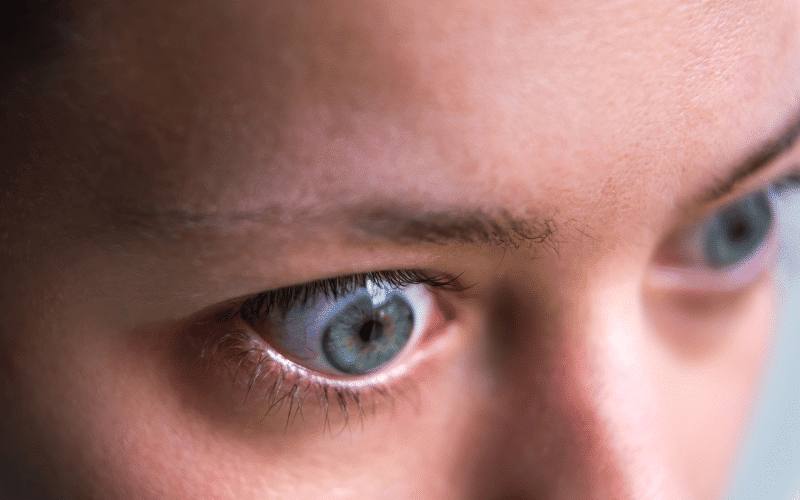Symptom 13. Bulging Eyes: The Prominent Sign of Thyroid Eye Disease (TED)

One of the common and most recognizable symptoms of Thyroid Eye Disease is the protrusion of the eyes or Bulging eyes, known as exophthalmos or proptosis. This occurs due to inflammation and swelling of the muscles and tissues surrounding the eyes, causing the eyes to be pushed forward and protrude from the eye sockets. Bulging eyes can lead to discomfort, dryness, and an increased risk of corneal ulcers and infections.
Bulging eyes in TED can occur in one or both eyes and can be mild to severe. The severity of bulging eyes can vary, depending on the extent of the inflammation and swelling. The eyes may appear to bulge out more as the condition progresses, and in severe cases, the eyelids may not be able to close completely, causing dryness and irritation of the cornea. This can lead to vision loss and other eye problems.
Treatment options for bulging eyes in TED may include lubricating eye drops or ointments to alleviate dryness, wearing protective eyewear to prevent injury, and elevating the head during sleep to reduce swelling. In more severe cases, your healthcare provider may recommend medications to reduce inflammation and swelling, such as corticosteroids and immunosuppressants. Also, surgery or other specialized treatments may be required to decompress the eye sockets and reduce pressure on the eyes. In some cases, the bulging eyes may improve over time with treatment, while in others, the condition may persist.
It is important to note that not all individuals with TED have bulging eyes, and not all cases of bulging eyes are due to TED. Therefore, it is essential to seek medical attention if you experience any changes in your eyes or vision, as prompt diagnosis and treatment can help prevent complications and preserve your vision. (13)